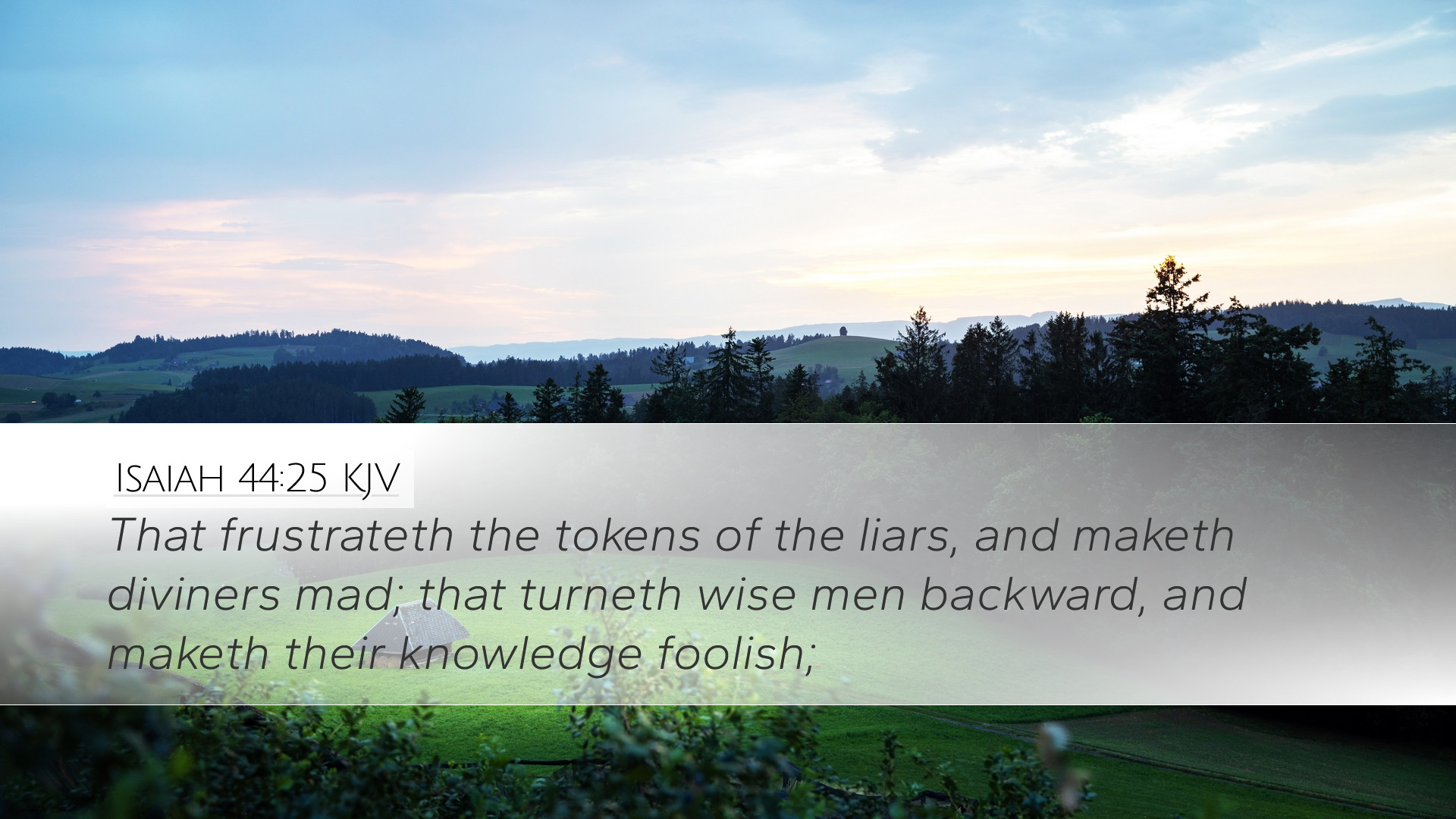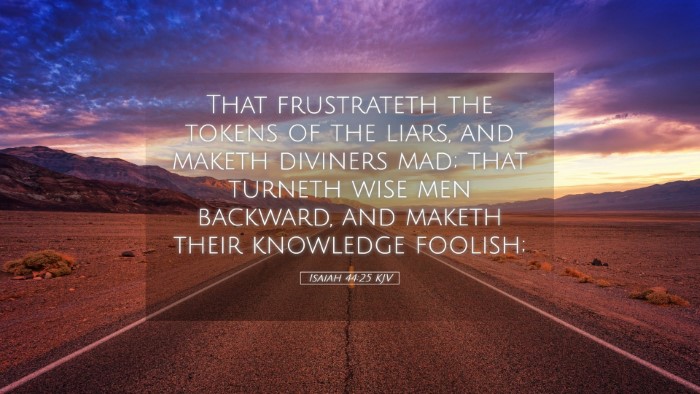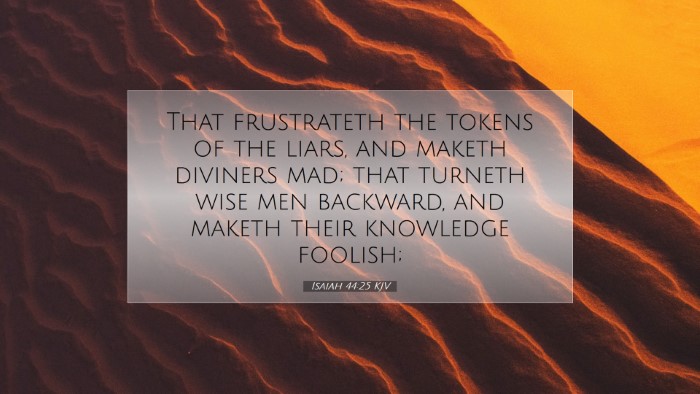Commentary on Isaiah 44:25
Text of Isaiah 44:25 (KJV): "That frustrateth the tokens of the liars, and maketh diviners mad; that turneth wise men backward, and maketh their knowledge foolish."
Contextual Overview
The verse stands within a profound section of Isaiah where the Lord asserts His sovereign power over the nations, contrasting His eternal truth with the falsehoods propagated by idols and the wisdom of men. Isaiah 44 is situated within a larger theme that emphasizes God’s supremacy and the futility of idolatry.
Insights from Commentators
Matthew Henry's Commentary
Matthew Henry emphasizes the Lord's power to thwart the plans and claims of false prophets and diviners. He notes that God actively "frustrateth the tokens of the liars", indicating that He dismantles their falsehoods and exposes their deficiencies. Henry articulates that the "liars" may refer to those who speak contrary to God's revealed truth, illustrating a divine assurance that He will ultimately vindicate His word against all forms of deception.
Henry also discusses how the term "diviners" encapsulates those who engage in supernatural practices apart from God. By rendering them "mad," God disrupts not only their predictions but also the premises of their wisdom. It shows a reversal of expectations—what was once viewed as wise turns into folly in the light of God's truth.
Albert Barnes' Notes
Albert Barnes highlights the futility of human wisdom in the face of divine knowledge. He points out that the "wisdom" of the world is rendered foolishness by God. Barnes elaborates on the notion that God turns wise men backward, emphasizing that human understanding is often misguided and cannot stand against the true knowledge of God.
Furthermore, Barnes reflects on the role of divine intervention in human affairs, suggesting that God's ways are higher than our ways, and His understanding is beyond human comprehension. He reinforces the idea that the knowledge we think we possess may be unraveled by God's ultimate truth, illuminating the grand theme of divine sovereignty over human pretensions and ignorance.
Adam Clarke's Commentary
Adam Clarke adds a nuanced perspective by discussing the social and cultural implications of idolatry during Isaiah's time. He posits that those who engaged in idolatrous practices believed they had wisdom to communicate with spiritual realms, yet Clarke reminds readers that God dismantles their schemes and exposes their baselessness.
He states that this verse serves as a warning against reliance on false sources of wisdom. Clarke explains that by confusing diviners, God calls His people back to reliance on His revelation, reinvigorating a theme found throughout the prophetic writings: the call to faithfulness amidst surrounding corruption.
Theological Implications
This verse profoundly encapsulates several theological themes:
- Divine Sovereignty: God’s control extends over all human endeavors, specifically those that oppose Him. This highlights His authoritative will over creation.
- Folly of Idolatry: The verse is a stark reminder of the insignificance of idols and the systems built upon human wisdom that excludes God.
- God's Revelation: It emphasizes the importance of divine revelation and the Word of God as the ultimate source of truth, in contrast to human philosophies.
Practical Applications for Pastors and Scholars
This commentary can serve several purposes:
- Encouragement for Ministry: Pastors can glean from this verse a reminder that God ultimately frustrates the plans of falsehood. It encourages reliance on His guidance in teaching and leading.
- Tools for Teaching: Scholars can utilize insights from these commentaries to expound upon the nature of true wisdom versus human folly, providing robust discussions in theological education settings.
- Call to Faithfulness: This verse serves as both a caution and a call to remain faithful to God's Word, nurturing a deeper understanding among congregants about the dangers of straying from biblical truths.
Conclusion
Isaiah 44:25 serves as a timeless reminder of the supremacy of God's truth over human pretentions. The insights provided by commentators like Matthew Henry, Albert Barnes, and Adam Clarke deepen our understanding of the text and its application in contemporary life. For pastors, students, and scholars alike, this verse invites reflection on the nature of wisdom and encourages a faithful walk with the Lord, who alone holds the keys to true understanding and revelation.


